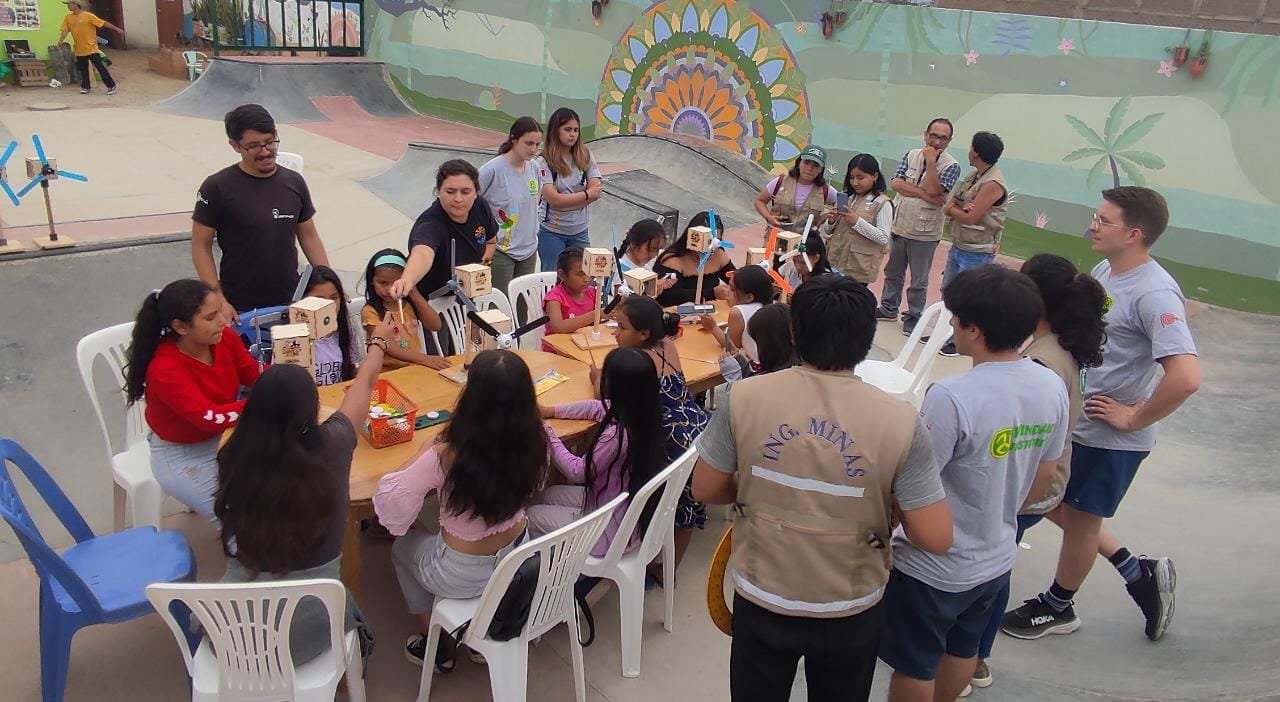
Our Impact
Energy access is a basic human right.
Who We Serve
Access to electricity is a basic necessity for the quality of life of any human being living today. Many of us don’t even think twice about turning on the light switch in our homes, but energy poverty severely limits the ability and opportunity for those without access to electricity to thrive.
While urban areas in Peru generally enjoy robust energy access, many rural areas of Peru, particularly in the Andes and Amazon regions, continue to face challenges in connecting to the grid.
1.2 million Peruvians do not have access to electricity. [1][2]
Those in need of access to energy in Peru live in remote, rural locations. Due to the difficulties and costs associated with connecting to traditional power grids, 37% of people in these communities have never had electricity in their homes. It is these communities we strive to work with and ensure that they can enjoy the benefits of a life changing resource.
A life without electricity is hard. If you were to imagine a list of your daily activities, it is likely most of them involve electricity in some way. A reliance on alternative energy sources for rural communities can be expensive, unreliable and unsafe.
We want to be a part of the change.
[1] World Bank. "Access to electricity (% of population) - Peru." [2] World Bank. "Population, total.”
What We’ve Achieved
Since 2006, our educational institution has worked with over 500 international students and over 5 communities across Peru.
To date, WindAid has installed over 50 wind turbines across Peru.
WindAid has hosted over 100 educational workshops at local schools, universities, and communities.
WindAid has taught over 500 international students from 40 different countries.
WindAid and the community of Catac have broken a Guinness world record, having installed the highest altitude wind turbine in the world! Officially certified this month by Guinness, the turbine provides electricity to the community beside the shrinking Peruvian glacier of Pasto Ruri at 4,877m (16,000ft) above sea level.
Electricity is crucial for poverty alleviation, economic growth, health, safety, and improved living standards.
The impact a renewable source of energy can bring is breathtaking. Cell phones can be charged to open up communication with other communities. The reliance on dangerous candles and fire for interior light is gone. Children can continue to study at night when natural light is scarce.
United Nations Sustainable Development Goals
WindAid is working towards the broader effort to achieve universal energy access by 2030, in alignment with Sustainable Development Goal (SDG) 7. Global energy agencies, including the World Bank and the International Energy Agency (IEA), highlight these areas as needing targeted interventions to improve connectivity and energy infrastructure to meet this ambitious target.
Ensure access to affordable, reliable, sustainable and modern energy for all.
WindAid contributes to SDG 7: Affordable and Clean Energy. We directly address the need for renewable energy by providing wind turbines to communities without access to electricity. This aligns with the goal of ensuring access to affordable, reliable, and sustainable energy.
Other Key SDG’s Impacted
-

End poverty in all its forms everywhere.
By empowering rural and underserved communities with access to clean, reliable electricity, it fosters economic opportunities and improves quality of life.
-

Ensure healthy lives and promote well-being for all at all ages.
Access to clean energy reduces reliance on harmful fuels like kerosene or fumes from wax candles for lighting, which improves indoor air quality and health outcomes.
-

Ensure inclusive and equitable quality education and promote lifelong learning opportunities for all.
WindAid’s internship and educational programs provide hands-on learning experiences in renewable energy, empowering local and international students, volunteers, and community members with technical skills. Additionally, our community beneficiaries can now utilize modern lighting to read and study at night.
-

Promote sustained, inclusive and sustainable economic growth, full and productive employment and decent work for all.
The organization fosters job creation and economic growth in local communities through renewable energy projects and education. By electrifying off-grid areas with essential lighting, our community beneficiaries are not constrained to daylight hours to pursue economic opportunities. They can now continue to do work and household chores at night.
-

Make cities and human settlements inclusive, safe, resilient and sustainable.
WindAid’s work supports sustainable rural development by providing clean energy solutions that enhance quality of life and resilience in underserved communities.
-

Take urgent action to combat climate change and its impacts.
By promoting wind energy, WindAid reduces reliance on fossil fuels, helping mitigate climate change by decreasing greenhouse gas emissions.
-

Strengthen the means of implementation and revitalize the Global Partnership for Sustainable Development.
WindAid fosters collaborations that enhance its ability to deliver renewable energy solutions and support sustainable development in underserved communities. We partner with educational institutions, corporations, and nonprofits all over the world. Our programs bring together students and professionals to design build and install wind turbines, sharing knowledge and promoting capacity building across borders. We work closely with local communities to co-develop projects, empowering them to take ownership of the technology and its maintenance.










